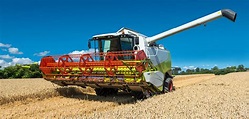When you Rent A Car in Dubai, ensuring vehicle safety is not only essential for protecting yourself and your passengers but also for making your driving experience smooth and stress-free. Dubai’s bustling roads, advanced highways, and varying terrain make driving in the city an exciting experience, but it also comes with its own set of challenges. Whether you’re navigating city traffic, exploring desert landscapes, or heading out on a long road trip, adopting best practices for vehicle safety is key to avoiding accidents and ensuring a successful trip.
In this guide, we’ll cover the best practices for vehicle safety when you rent a car in Dubai, ensuring that your journey is both enjoyable and secure.
1. Choose the Right Vehicle for Your Needs
One of the first steps in ensuring vehicle safety when you Rent A Car Dubai is choosing the right car for your journey. Different types of vehicles are suited for different purposes, so it’s crucial to match your vehicle with your specific driving needs.
Consider Your Driving Route
Are you primarily driving around the city, or do you plan to explore the desert or mountainous areas? The type of terrain you’ll be navigating should heavily influence your vehicle choice.
- City Driving: If you’re staying within Dubai’s urban areas, a compact sedan like a Toyota Corolla or Nissan Sunny offers easy maneuverability and is ideal for traffic-heavy environments. These cars are fuel-efficient and easy to park in tight spaces.
- Off-Road and Desert Driving: If you’re venturing into the desert, mountainous areas, or off-the-beaten-path locations, opt for a robust 4×4 SUV like the Toyota Land Cruiser or Nissan Patrol. These vehicles offer better traction, ground clearance, and stability on uneven terrain, ensuring a safer off-road experience.
Check the Vehicle’s Safety Features
When renting a car, make sure it’s equipped with essential safety features. These include:
- ABS (Anti-lock Braking System): Prevents the wheels from locking up during braking, allowing you to maintain control in slippery conditions.
- Airbags: Ensure that the vehicle has front and side airbags for both the driver and passengers in case of an accident.
- Traction Control: This system helps maintain vehicle stability on slippery or uneven roads by adjusting the power distributed to each wheel.
- Parking Sensors and Cameras: These features are particularly helpful in Dubai’s busy parking lots and narrow city streets, helping you park safely without accidental bumps or scratches.
Tip: When booking online, look for vehicles that specifically list safety features and read reviews from other renters to assess the overall condition of the cars provided by the rental company.
2. Inspect the Vehicle Before Driving
Once you’ve selected the right vehicle, it’s important to thoroughly inspect the car before you drive it off the lot. Rental companies typically maintain their cars well, but taking a few moments to inspect the vehicle can save you from potential issues during your trip.
Exterior Inspection
- Check for Damage: Walk around the car and check for any dents, scratches, or cracks on the windows. Document any existing damage by taking pictures or videos and ensure that the rental company is aware of them so you are not held responsible later.
- Check the Tires: Ensure that the tires are properly inflated and that the tread is in good condition. Uneven or worn-out tires can affect your driving safety, especially on highways or desert roads.
- Lights and Indicators: Test the headlights, brake lights, turn signals, and hazard lights to make sure they are all functioning properly. In case of any malfunction, request a different vehicle or ask the rental company to fix it.
Interior Inspection
- Check the Dashboard: Turn on the ignition and check for any warning lights on the dashboard, such as low oil or engine issues. If any lights are on, notify the rental company before driving away.
- Seatbelts: Ensure that all seatbelts are functioning properly. This includes testing both the driver’s and passengers’ seatbelts.
- Air Conditioning: Given Dubai’s hot climate, make sure that the car’s air conditioning is working well. This is especially important if you’re traveling long distances in the desert.
Tip: Always ensure that the spare tire, jack, and other essential tools are available in case of a flat tire or emergency repair situation.
3. Familiarize Yourself with Local Traffic Laws
Dubai has specific traffic laws that must be followed to ensure safety and avoid hefty fines. Understanding these laws is essential for a smooth driving experience.
Speed Limits
Speed limits in Dubai are clearly marked and enforced through numerous speed cameras located across the city. The typical speed limits are:
- Urban areas: 40-80 km/h
- Highways: 100-120 km/h
Always stay within the speed limits, as speed cameras are active, and speeding tickets can be expensive. Some highways have speed buffers, where exceeding the limit by up to 20 km/h might not incur a fine, but it’s best to avoid this practice to ensure safety.
Driving Under the Influence
Dubai has a zero-tolerance policy for driving under the influence of alcohol or drugs. Even a small amount of alcohol can result in severe penalties, including fines, imprisonment, and possible deportation for expatriates.
Use of Mobile Phones
Using a mobile phone while driving is illegal unless you’re using a hands-free device. Avoid distractions by keeping your phone out of reach or connected via Bluetooth to the car’s audio system.
Seatbelts Are Mandatory
All passengers, including those in the back seats, are required by law to wear seatbelts at all times. Failing to comply can result in fines for the driver.
Overtaking and Lane Discipline
Always overtake from the left and avoid unnecessary lane changes. Be cautious when changing lanes and always use your indicators to signal your intentions.
Tip: Dubai has several high-traffic areas, especially during peak hours. Be patient, follow lane discipline, and avoid aggressive driving.
4. Adjust Your Driving to Local Conditions
Dubai’s roads are modern and well-maintained, but you’ll encounter varying conditions, especially if you’re traveling outside the city. Adapting your driving to the local conditions is crucial for safety.
Handling Urban Traffic
Driving in Dubai’s city center can be challenging due to heavy traffic, especially during rush hour. Popular areas like Downtown Dubai, Jumeirah Beach Road, and Sheikh Zayed Road often experience congestion. Always maintain a safe distance from the car ahead and be prepared for sudden stops.
Driving in the Desert
If you plan to drive into the desert for activities like dune bashing or desert safaris, safety becomes even more critical. Desert driving requires a 4×4 vehicle, and it’s important to:
- Reduce Tire Pressure: Lower the tire pressure to improve traction on the sand.
- Travel in Convoys: Always drive with at least one other vehicle in case you get stuck.
- Carry Essential Gear: Ensure you have essentials like water, a shovel, traction mats, and a spare tire when venturing into remote desert areas.
Night Driving
While Dubai’s highways and city roads are well-lit, driving at night in more remote areas, like the desert or smaller towns, can be challenging due to reduced visibility. Always use your headlights appropriately and reduce your speed to avoid accidents.
Tip: Be cautious of sudden fog, which is common in the early mornings, especially in winter. Fog can drastically reduce visibility, so slow down and use your fog lights if needed.
5. Prepare for Emergency Situations
Being prepared for emergencies is an important aspect of vehicle safety, especially when you’re in a new country.
Keep Important Contacts Handy
Make sure you have the contact information of the car rental company’s roadside assistance and local emergency numbers. In Dubai, the emergency number for the police is 999, and for ambulance services, it’s 998.
Carry a First Aid Kit
Ensure that the car is equipped with a basic first aid kit. In case of minor injuries, having access to bandages, antiseptic wipes, and pain relievers can be helpful.
Breakdown and Accident Protocol
If your car breaks down or you’re involved in an accident:
- Move your vehicle to the side of the road, if possible.
- Turn on your hazard lights.
- Call the rental company for roadside assistance.
- In case of an accident, contact the police immediately, as you’ll need a police report for insurance claims.
Tip: Always keep a charged phone with you and ensure you have enough fuel, especially if you’re driving to remote areas.
6. Practice Defensive Driving
Defensive driving means being aware of other drivers and anticipating potential hazards. In a busy city like Dubai, this skill can help you avoid accidents and stay safe.
Stay Alert and Focused
Always keep both hands on the wheel and your eyes on the road. Avoid distractions such as eating, texting, or adjusting your GPS while driving.
Maintain a Safe Following Distance
In heavy traffic or on highways, it’s important to maintain a safe distance from the car in front of you. This gives you enough time to react if the car ahead stops suddenly.
Be Cautious at Intersections
Even if you have the right of way, always slow down and check for oncoming vehicles at intersections. Some drivers may try to run red lights or ignore signals.
Tip: Watch for pedestrians and cyclists, especially in tourist areas like JBR (Jumeirah Beach Residence) or The Palm Jumeirah, where there’s more foot traffic.
Conclusion
Renting a car in Dubai is one of the best ways to explore the city and its surroundings. By following these best practices for vehicle safety, you can ensure a smooth, enjoyable, and safe driving experience. From choosing the right vehicle to understanding local traffic laws and preparing for emergencies, staying vigilant will help you navigate Dubai’s roads confidently and without incident. When you Rent A Car in Dubai, prioritize safety, and you’ll have a hassle-free trip filled with memorable moments.
 Daily Blogger News Stay updated with the latest trends and insights. Your reliable source for daily updates and information.
Daily Blogger News Stay updated with the latest trends and insights. Your reliable source for daily updates and information.






